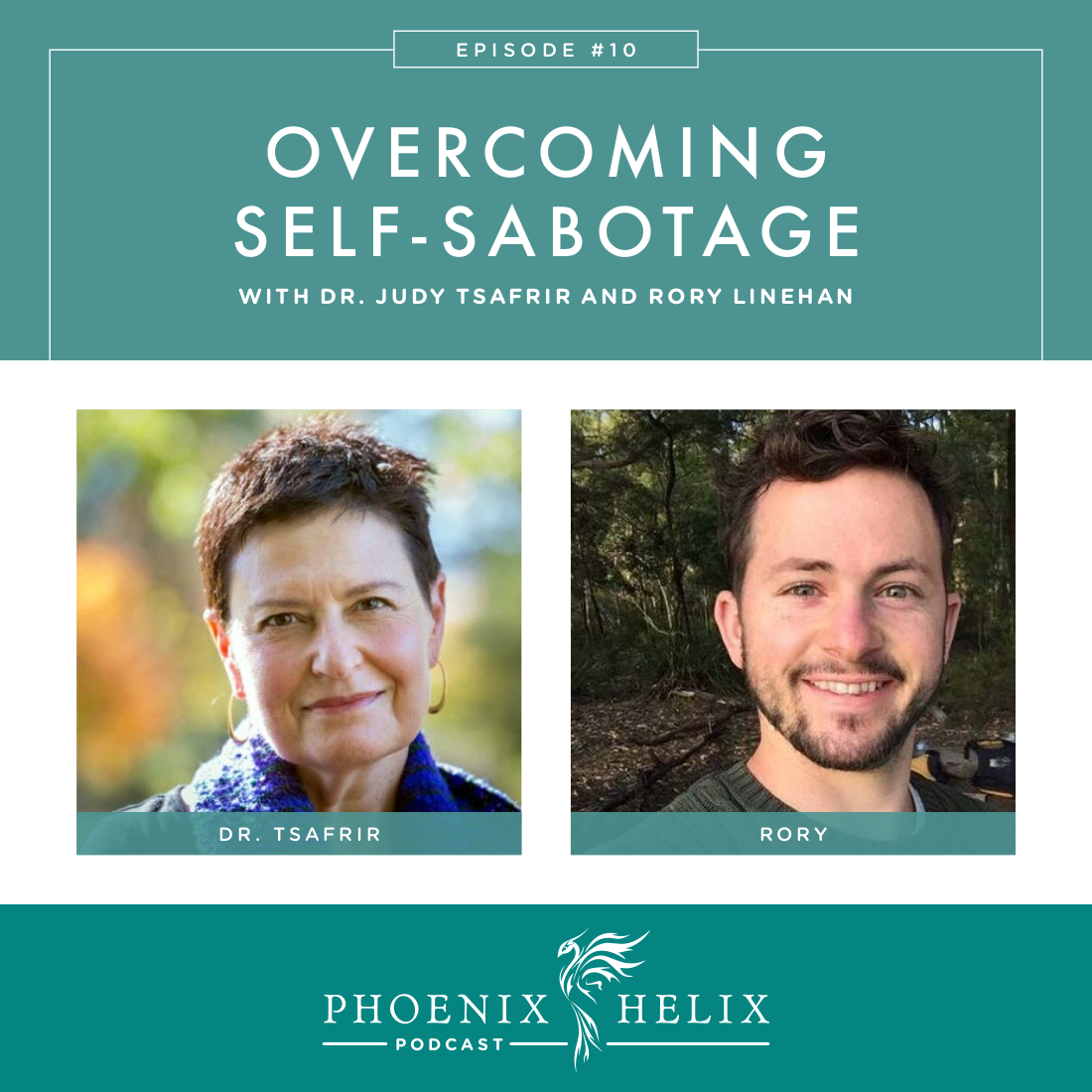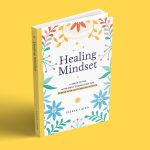Breaking Painful Habits
I get so many emails from readers who have learned how food and lifestyle affects their body, but continue to make choices that cause autoimmune flares. When they email me, they’re in a lot of pain physically and emotionally, and they’re desperate to stop this pattern. It breaks my heart. So, this podcast is dedicated to all of you. I’m joined by two guests who have both personal and professional wisdom to share.
Dr. Judy Tsafrir is a psychiatrist who specializes in nutritional approaches to healing, using the GAPS Diet and the Paleo Autoimmune Protocol with her patients. Today, she’ll be teaching us what’s going on in our bodies and brains, when we sabotage our own health. Rory Linehan is the blogger behind The Paleo PI (since retired). He has personal experience overcoming self-sabotage and will be sharing his story with us today.
Listen to the Show
- Subscribe to my podcast through your favorite podcast app: iTunes, Stitcher, Google, TuneIn, Spotify, Amazon, etc.
- You can also listen to the episode right here through the player below, and if you subscribe to my newsletter you’ll get notified of future episodes.
Podcast: Play in new window | Download
Show Notes
- Intro (0:00)
- Meet Our Guests (3:01)
- Rory Linehan is the blogger behind The Paleo PI. He got mononucleosis at age 18, that set off health symptoms that never fully recovered: fatigue, facial flushing, and severe dry eye. It took years before he was diagnosed with facial and ocular rosacea. During that time, his health continue to decline and symptoms expanded to include depression, anxiety and digestive distress. Paleo finally turned his health around, particularly the work of Terry Wahls and Sarah Ballantyne. Rory found that focusing on lifestyle and mindset was a key to his healing. Rory’s self-sabotage pattern was hoarding junk food that he would store in his bedroom, and then secretly eat whenever he had a bad day. The way he overcame this pattern was a combination of: (1) changing his mindset and beliefs about himself, (2) creating a vision board that represented his goals which he hung in his bedroom, and (3) making up a list of “safe” paleo treats that would satisfy his need for comfort food on occasion, without sabotaging his healing.
- Dr. Judy Tsafrir is a clinical psychiatrist and also a teacher at Harvard Medical School. Her personal health history and that of her family, taught her that there was more to mental health than medication. She focuses her work on gut health and the gut-brain connection.
- Possible Physiological Triggers for Self-Sabotage Behavior (19:05)
- Brain fog makes it hard to effectively implement a big diet and lifestyle change. Ironically, it’s diet/lifestyle that can eliminate brain fog.
- Inflammation can make us seek comfort through food, and we get trapped in a vicious cycle of increasing inflammation.
- Gut Dysbiosis: sugar is the preferred food for a lot of pathogenic bacteria, and that can drive cravings.
- Excess carbohydrates in the diet cause blood sugar imbalances that lead to more sugar cravings, another vicious cycle.
- Vitamin deficiencies can affect brain function and decision-making. (Walsh Research Institute.)
- Hormones affect food cravings – both sex hormones and stress hormones.
- Possible Emotional Triggers for Self-Sabotage Behavior (32:13)
- Feeling deprived leads to feeling rebellious, even when we’re the ones setting the rules.
- If we lack meaning and purpose in life, we can feel “empty” and fill ourselves with food.
- Childhood issues can manifest as self-sabotage behavior.
- Negative thoughts and beliefs often lead to negative choices.
- Feeling betrayed by our bodies can lead to a desire to “punish” our bodies.
- Fear of change can be a root of self-sabotage, even fear of wellness if we’ve been sick a long time.
- Sometimes we choose “fitting in” over taking care of ourselves. Healing diets are well outside of the mainstream, and our friends and family often tempt us to go off-diet.
- Practical Tips for Overcoming Self-Sabotage (interspersed throughout podcast)
- Write a list of activities that soothe you, which you can choose to do instead of eating unhealthy foods.
- Find foods that still comfort without triggering inflammation.
- Make changes in small steps: If you aren’t ready physically or mentally to embrace something as big as full paleo or the AIP, just give up gluten first. Then dairy. Then sugar. Then alcohol. As you start to feel better, you can embrace bigger changes.
- Get tested for gut dysbiosis and if you have overgrowths of pathogenic bacteria, follow a treatment protocol to eliminate them.
- Get tested for vitamin/mineral deficiencies and correct them, ideally through nutrient-dense food choices.
- Make sure you eat plenty of fat and protein throughout the day, to keep your blood sugar balanced.
- Walk barefoot in nature to “ground” yourself.
- Write in a journal, to explore some of the emotional triggers for self-sabotage and see which apply to you, and how you can overcome them.
- A dream journal can be very insightful.
- See a therapist to explore some of the childhood and/or emotional roots of your personal habit of self-sabotage. An outside perspective can be very helpful.
- Pay attention to your thoughts and beliefs, and work to change negative perceptions into positive ones.
- Work to love your body and see it as your partner in healing.
- Find a support system for making healthy choices, either locally or online.
- Practice assertiveness when being pressured by someone else to make a choice that will hurt your body. The more comfortable we are with your choices, the less other people challenge those choices.
- Try the emotional freedom technique or loving kindness meditation to stop a self-sabotage impulse.
- Work to balance your circadian rhythms, which in turn can balance your hormones.
- Forgive yourself for your mistakes.
- Helpful Podcast Episodes:
- Outro (57:34)
- Dr. Judy Tsafrir has a clinical practice in Newton, MA and also writes a blog. You can find more information about her work through her website.
- Update 2020: Rory Linehan retired his blog, the Paleo PI. He’s still passionate about living a healthy and vital life, but no longer writes online.
- Eileen (your podcast host) is the author of multiple books, written to help people thrive with autoimmune disease. Learn more on the Books Page.
- If you like this podcast, follow or subscribe through your favorite podcast app. You can also subscribe to Eileen’s biweekly newsletter.
- Check out the entire archive of podcast episodes.
You May Also Be Interested In
Spreading the Word
If you like the podcast, please leave a positive review in iTunes. It would mean the world to me, and also helps others find the podcast. Here are some quick instructions using your iPhone:
- If you are already subscribed to my podcast: (1) Click the purple podcast icon. (2) At the bottom of the screen, click Library. (3) At the top of the screen, click Shows. (4) Click the Phoenix Helix podcast image. (5) Scroll down the page, and you’ll see Ratings and Reviews. Scroll down a little bit more and click on Write a Review. This will bring up the review screen. Tap 5 stars (if you love the podcast), and then click in the title box, and it will bring up the keyboard. Enter a title and short review. (6) Click Send in the upper right corner. (7) Thank you! Positive reviews give the podcast a higher search ranking in iTunes, helping people find it and letting them know it’s a quality podcast and worth their time to listen.
- If you haven’t subscribed to my podcast: (1) Click the purple podcast icon. (2) In the lower right corner, click the magnifying class. (3) Type Phoenix Helix in the search box. (4) Click the podcast cover in the Show list. (5) If you’d like to subscribe, click the + sign at the top of the screen. (6) To write a review, scroll down the page, and you’ll see Ratings and Reviews. Scroll down a little bit more and click on Write a Review. This will bring up the review screen. Tap 5 stars (if you love the podcast), and then click in the title box, and it will bring up the keyboard. Enter a title and short review. (7) Click Send in the upper right corner. (8) Thank you! Positive reviews give the podcast a higher search ranking in iTunes, helping people find it and letting them know it’s a quality podcast and worth their time to listen.









Dear Eileen, it’s now July 2016 that I am listening to this. What a great podcast as usual. As someone posted above, you are so generous and kind to spend the time and energy in interviewing all the guests; in addition to all that’s involved in your research and leading up to the interviews. Deep gratitude here and, as always, wishing you the very best for a healthy mind, body and spirit. May your soul fly high and carry you through all the times that life presents: difficult and sweet, sad and joyful, at rest and the “not so much” times too. 🙂 May we all know in the deepest sense the peace that passes all understanding no matter how we are feeling. Much love to all of us.
Oh Alice, what a gorgeous comment and so beautiful to read before I go to sleep tonight. Wishing us all sweet dreams.
I love your podcasts. Thank you for sharing other people’s stories. There were so many treasures in this podcast that I will have to listen to it several times. Thanks again.
You’re so welcome. I really enjoy doing the podcast. It keeps me inspired as well.
What perfect timing. The day I received your email notice about the podcast, I had just finished a four day wine gum/candy fest. Over the past 3 months, I went on AIP, began to reintroduce foods, felt fabulous, lost some weight and then caught a bad cold. Bronchitis and sinus infection lasted for four weeks and I began to feel sorry for myself. That led me to self sabotage and eat my favourite comfort food(?) which is chewy candy. Then I had to deal with the physical and emotional consequences of eating too much sugar. I am still dealing with the sinus infection so I’ve decided to stay away from the candy store! This podcast has been very helpful to me. Thank you for your commitment to come alongside people on the ups and downs of their healing journey, Eileen. What a ride!
Thanks for sharing your experience, Pat. I’m so glad the podcast was helpful. It’s an honor to be a support on that ride!
Thank you so much for addressing this, Eileen. This is a subject that deserves more attention. I’m really interested in the connection between trauma and the behaviours we subsequently engage in to regulate our nervous systems. I’ve observed that one of the most effective, readily available & socially acceptable ways we can self-medicate when faced with chronic nervous system disregulation is with food. Changing eating patterns can provoke profound healing (not just physically) & can also necessitate the adoption of new, healthier strategies for nervous system regulation.
That’s true, Petra. The mind-body connection works both directions.
Dear Eileen, Thank you for this podcast. The topic arrived in my inbox curiously synchronized to my immediate needs. Just when I think I’ve tapped all the modalities I can for my RA diagnosis, a fresh idea, or a persistent reminder of one I’ve heard before, but not fully explored, bubbles up. I’ll be following up on gut biome testing, resume my lapsed vitamin D and B complex, and give the tapping/affirmation practice another go. You are generous beyond measure. Please know you’re helping this gal stay off the immune suppressants….and to trust the power of nourishing foods. My crock pot is active like never before. Bless you, your wise guests today, and the happy musical hubby.
Jen, this comment made my night. Thank you!
Thank you Eileen. I believe our minds as well as our bodies become addicted to certain foods or drinks and sabotage our efforts. I need this kind of positive re-enforcement.
I’m so glad the podcast was helpful, Maria.